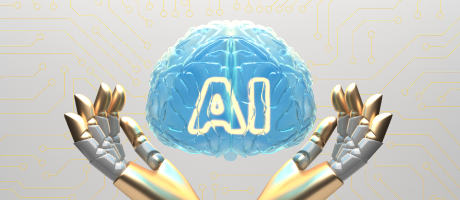Blog Posts & Blog Archives
All Blogs / it-and-computer
Exploring the Applications and Implications of Quantum Computing
Discover the transformative potential of quantum computing, from cryptography to optimization, and its broader impacts on security, industry, and research.
Saturday, August 24, 2024
Exploring the Applications and Implications of Quantum Computing
Quantum computing is emerging as one of the most groundbreaking technological advancements. These computers can tackle complex problems that traditional computers struggle to address. As this technology progresses, its applications and implications extend into various fields, including cryptography and materials science. In this blog, we will delve into the main applications of quantum computing and examine the wider effects of this groundbreaking technology. Quantum computing processes information in a fundamentally different manner compared to traditional computing.While classical computers use bits as the basic unit of information, quantum computers use quantum bits, or qubits. Unlike bits, which can be either 0 or 1, qubits can exist in a state of superposition, allowing them to represent both 0 and 1 simultaneously. This capability, combined with quantum entanglement and quantum interference, allows quantum computers to perform certain calculations exponentially faster than classical computers. The achievement of quantum supremacy represents a significant milestone in the field of quantum computing. This term describes a quantum computer's ability to solve a problem that classical computers cannot tackle within a reasonable timeframe. In 2019, Google announced that its quantum computer, Sycamore, reached this milestone by solving a complex problem in less than 200 seconds, a task that would take thousands of years for the most powerful classical supercomputer. This breakthrough signifies a pivotal moment in the evolution of quantum computing, showcasing its potential to revolutionise the computing landscape. Quantum algorithms are at the heart of quantum computing’s potential. These algorithms are designed to take advantage of the unique properties of qubits, enabling quantum computers to solve problems more efficiently than classical computers. ● Shor’s Algorithm: Used to factor huge numbers much quicker than the best-known classical techniques. This has substantial consequences for cryptography, as many encryption techniques are based on the difficulty of factoring huge integers. ● Grover’s Algorithm: Speeds up the search for an unsorted database, providing a quadratic speedup over classical algorithms. This can be applied in fields like database searching, optimization, and machine learning. ● Quantum Approximate Optimization Algorithm (QAOA): Designed for solving combinatorial optimization problems, which are common in logistics, finance, and other industries. Quantum cryptography is an intriguing application of quantum computing that focuses on secure transmission. In contrast to traditional encryption methods, which depend on mathematical algorithms vulnerable to quantum attacks, quantum cryptography guarantees security by utilising the principles of quantum physics. The most recognized method in quantum cryptography is Quantum Key Distribution (QKD), which allows two parties to exchange a cryptographic key securely. If someone attempts to eavesdrop on the key exchange, it would disturb the quantum state of the particles, notifying the parties of a potential intruder. This makes QKD an essential tool for protecting sensitive information in an era where quantum computers can compromise conventional encryption methods. Quantum simulation stands out as one of the most important applications of quantum computing, with the ability to revolutionise fields like chemistry, materials science, and drug development. Quantum simulators can model complex quantum systems that are beyond the reach of classical computers. For example, simulating the behaviour of molecules at the quantum level could lead to the discovery of new materials with desirable properties, such as superconductors or advanced catalysts. In drug discovery, quantum simulations could enable the design of more effective pharmaceuticals by providing insights into molecular interactions that are currently inaccessible to classical simulations. Quantum computing shows great promise in solving optimization problems that are prevalent across industries. These challenges involve choosing the best solution from a wide range of options, like enhancing supply chains, managing financial portfolios, or optimizing traffic flow. Classical computers struggle with these problems due to the sheer number of possibilities, but quantum computers, with their ability to evaluate many possibilities simultaneously, could provide optimal solutions in a fraction of the time. The rise of quantum computing brings both advantages and challenges in the realm of cybersecurity. On one hand, quantum cryptography offers innovative methods for secure communication. Conversely, the capacity of quantum computers to break traditional encryption methods poses a significant threat. It is essential for governments and businesses to get ready for a post-quantum world by developing and adopting encryption systems that can withstand quantum attacks to safeguard vital information. The vast possibilities of quantum computing generate ethical and cultural concerns. For example, the capacity to mimic complex systems and optimize processes might lead to advances in fields such as healthcare and energy, but it could also result in job displacement and economic disruption. Furthermore, quantum computing's ability to crack encryption raises worries about privacy and national security. Policymakers, engineers, and ethicists must work together to solve these issues and guarantee that quantum computing is created and utilized ethically. Quantum computing could significantly impact various industries, leading to substantial economic changes. Industries such as pharmaceuticals, finance, logistics, and energy could experience rapid innovation and growth as quantum computing enables new solutions to previously unsolvable problems. Companies that invest in quantum technologies early on may gain a competitive advantage, while those that fail to adapt could be left behind. Quantum computing could accelerate scientific discovery by providing new tools for research in fields such as physics, chemistry, and biology. For example, understanding complex quantum phenomena could lead to new insights into the fundamental nature of the universe. Similarly, quantum simulations could unlock new knowledge in areas like material science, leading to the development of advanced technologies. Quantum computing is currently in its early stages, facing several technological challenges. For quantum computers to reach their full potential, issues like qubit coherence, error correction, and scalability need to be resolved. However, ongoing research and development efforts are making strides, and the outlook for quantum computing is optimistic. As these computers grow more powerful and accessible, their range of applications will expand, potentially transforming various industries and society as a whole. Researchers, businesses, and government agencies are keen to harness the potential of quantum computing and reap its rewards. Quantum computing represents a major technological breakthrough, offering immense processing capabilities that can tackle some of the most complex challenges we face today. However, it's essential to carefully consider the implications of this technology to promote its responsible growth and use. As we approach the realisation of quantum computing's full potential, it's important to stay alert and prepared for the upcoming transformations. Understanding Quantum Computing
Quantum Supremacy
Applications of Quantum Computing
1. Quantum Algorithms
2. Quantum Cryptography
3. Quantum Simulation
4. Optimization Problems
Implications of Quantum Computing
1. Impact on Cryptography and Security
2. Ethical and Societal Considerations
3. Economic and Industrial Impact
4. Advancing Scientific Research
The Future of Quantum Computing
Conclusion:
Related Blogs
The Evolution of Artificial Intelligence from Its Early Days to the Present
Explore the journey of Artificial Intelligence, from myths to cutting-edge technology, highlighting key pioneers, breakthroughs, and ethical considerations.
By WelinkJobs | Monday, April 15, 2024
The Evolution of Wireless Networks, Their Challenges, and Their Promising Technologies
Explore the evolution of wireless networks from 1G to 5G, the challenges faced, and promising future technologies like 6G, quantum communication.
By WelinkJobs | Friday, May 24, 2024



